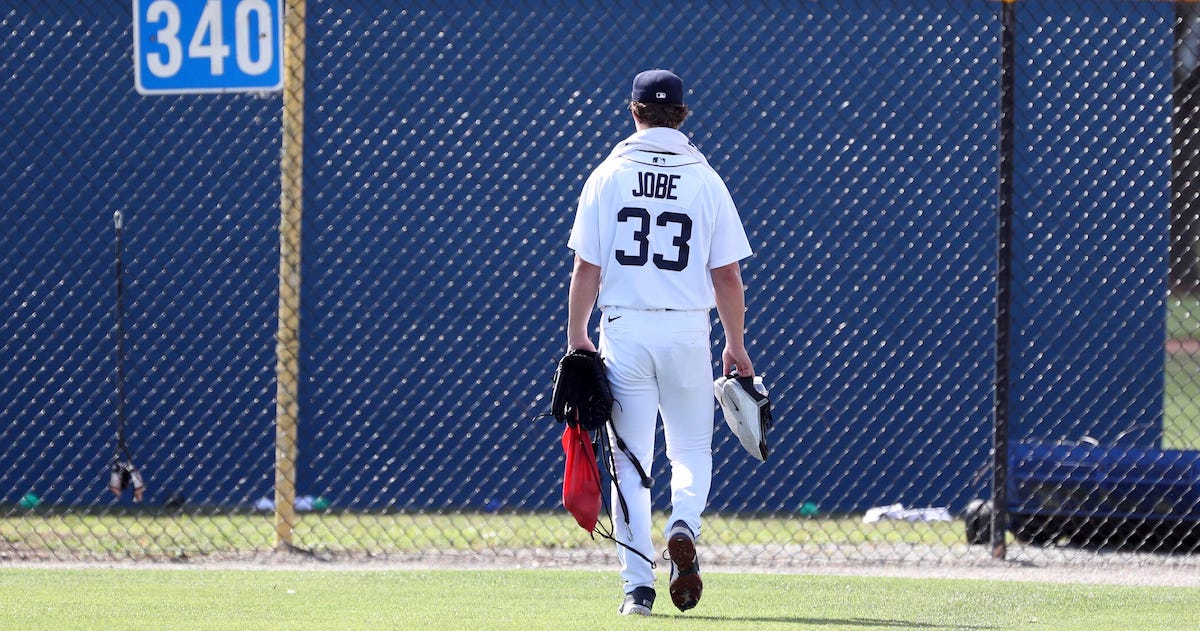The Netflix series “Receiver” has provided football fans with unprecedented access to the behind-the-scenes lives of NFL players, shedding light on the rigorous demands and challenges they face, including the pervasive issue of injuries. However, for the Detroit Lions, this exposure may have inadvertently placed them under scrutiny by the NFL.
In a revealing segment of the series, it was disclosed that Jackson Jobe. Brown, a promising young receiver for the Lions, sustained a significant injury during Week 3 of the NFL season. According to league regulations, all injuries, regardless of severity, are required to be reported on the team’s weekly injury report. Yet, the Lions failed to adhere to this protocol, as confirmed by the Netflix series.
The revelation came as a surprise to NFL fans and analysts alike, as St. Brown’s Week 3 oblique injury was not disclosed by the Lions prior to their Week 4 game. This omission potentially violated NFL rules aimed at transparency and fairness in competitive integrity.

As a consequence of the undisclosed injury, St. Brown was unable to participate in the Lions’ Week 5 matchup against the Carolina Panthers. This absence further underscored the impact of the injury, raising questions about the Lions’ compliance with league regulations and their obligation to provide accurate injury information.
The failure to report St. Brown’s injury promptly has sparked discussions across sports media platforms, with experts weighing in on the potential repercussions for the Lions. Mike Florio of Pro Football Talk speculated on the matter, suggesting that the NFL may investigate the Lions for their oversight. He pointed out that while the inclusion of St. Brown’s injury in the Netflix series was a matter of editorial choice, it nonetheless highlighted a procedural lapse that the league may deem worthy of review.
Florio’s commentary reflects broader concerns about the efficacy of NFL injury reporting protocols. He argues that the current system, designed to ensure transparency and fairness, often falls short in preventing teams from withholding crucial information. This incident involving the Lions and St. Brown serves as a poignant example of the challenges inherent in maintaining integrity within the league.
Despite the potential gravity of the situation, some observers believe that any disciplinary action against the Lions may be minimal. Speculation suggests that even if the NFL were to impose penalties, they would likely amount to financial fines rather than more severe sanctions. Such fines, while significant in amount, may not significantly impact the Lions’ operational capabilities or competitive standing within the league.
The overarching implications of this incident extend beyond the immediate concerns of one team’s compliance. It underscores ongoing debates about the effectiveness of NFL governance and the broader implications of media access in modern sports. The intersection of entertainment and regulatory oversight, exemplified by the Netflix series “Receiver,” has brought to light new challenges and opportunities for the league to uphold its standards of conduct.
Looking ahead, the Detroit Lions and other NFL teams may face increased scrutiny over their handling of injury reporting. The incident involving Amon-Ra St. Brown serves as a cautionary tale, prompting discussions about the need for enhanced transparency and accountability within professional sports. As the league navigates these complexities, stakeholders will continue to monitor developments closely, anticipating how the NFL will address this latest challenge to its regulatory framework.
In conclusion, while the Detroit Lions’ handling of Amon-Ra St. Brown’s injury has raised significant concerns within the NFL community, the ultimate repercussions remain uncertain. The incident underscores broader issues surrounding injury reporting in professional sports and highlights the evolving relationship between media coverage and league governance. As the situation unfolds, it will likely prompt further reflection and debate on the responsibilities of teams, players, and media in maintaining the integrity of America’s most popular sport.

Tigers7
